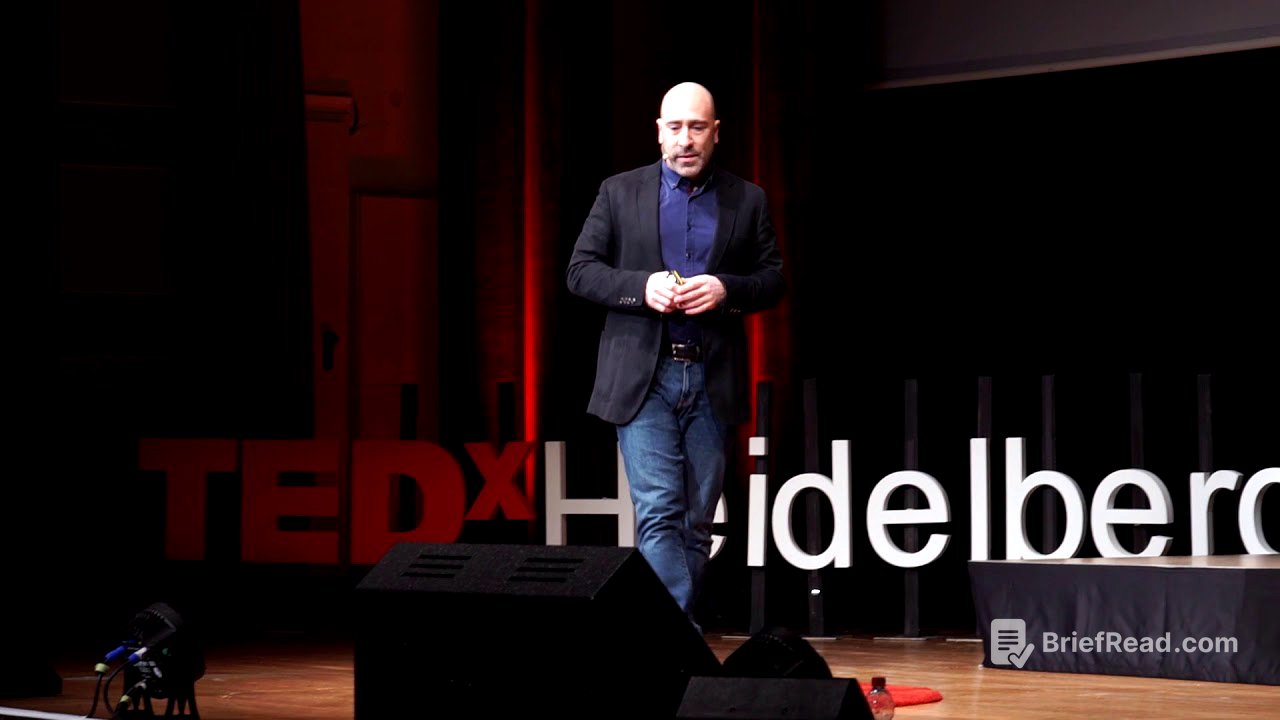TLDR;
The speaker shares a personal anecdote from a trip to Moscow that sparked a passion for language learning. He discusses the concept of fluency as a milestone in language acquisition and explores the advantages of being bilingual, including the development of multiple identities. The talk focuses on achieving a native-speaker level in a foreign language by concentrating on pronunciation, colloquial speech, and cultural traits, emphasizing the importance of interacting with native speakers and adopting the right mindset.
- Importance of pronunciation in language learning.
- Achieving a native-speaker level through focus on specific areas.
- Benefits of language learning beyond communication.
Moscow Adventure [0:11]
In 1987, the speaker, at age 15, visited Moscow with a group of Westerners. He and a friend ventured out on their own, exploring the Moscow metro. They got lost after the speaker mistakenly wrote down the Russian word for "exit" instead of the station name. After exiting they tried to take a taxi back to their hotel, but the driver demanded an exorbitant fare in dollars. They eventually found their way back on foot, and this experience instilled in the speaker the importance of understanding the local language when traveling.
Language Learning and Fluency [3:16]
The Moscow incident led the speaker to learn four more languages fluently. He describes language learning as turning over cards in a deck, with fluency reached when over 50% of the cards are revealed. Fluency means the language becomes part of your subconscious, allowing comfortable thinking and communication. While some pursue mastery, it's not necessary to gain the social benefits of a native speaker.
Benefits of Bilingualism [5:57]
The speaker's bilingual upbringing, with a German-speaking mother and an American father, gave him a head start in language learning and the ability to switch between identities. Native speakers often experience shifts in personality, humor, and values when switching languages. This can lead to increased problem-solving abilities, resistance to Alzheimer's, and social advantages, as native speakers accept you as one of their own.
Achieving Native-Speaker Level [8:11]
While there are no shortcuts to fluency, achieving a native-speaker level doesn't require academic mastery. The speaker outlines three key areas to focus on: eliminating or minimizing accent, using local verbs and expressions, and adopting cultural traits. Eliminating accent changes how natives behave towards you and helps you adapt to a new self-image.
Pronunciation and Colloquial Speech [9:45]
The "perfect-sentence technique" involves working with a native speaker to perfect pronunciation by repeating sentences until no accent is detectable. Learning local verbs and expressions, which often differ significantly from textbook language, is crucial for conversing with natives. Examples in French include using "mon boulot" instead of "le travail" for "my work."
Cultural Traits and Immersion [12:48]
Adopting cultural traits involves internalizing gestures, reactions, and interjections specific to the target language. The speaker provides examples of different reactions to pain and affirmative responses in American, German, and French cultures. Interacting with natives, ideally through immersion, is essential for mastering these nuances. Watching TV shows, films, and learning song lyrics can also aid in this process.
Mindset and Conclusion [16:02]
Adopting the right mindset, believing that you can achieve a native-like level by sounding, expressing, talking, and acting like a native, is crucial. The speaker emphasizes the importance of pronunciation at all stages of language learning. He concludes by sharing that he overcame his fear of Russian by marrying a Russian woman and being surrounded by the language daily.









